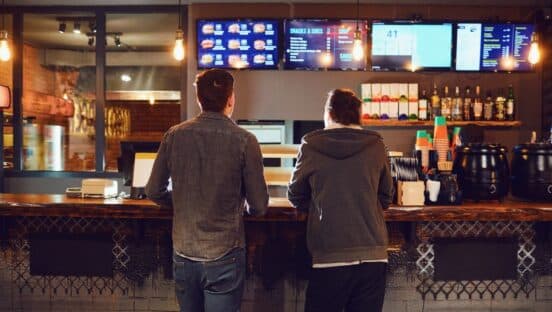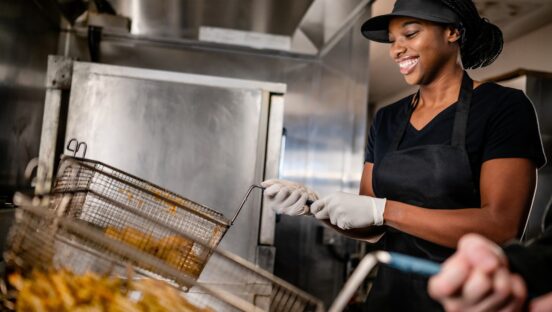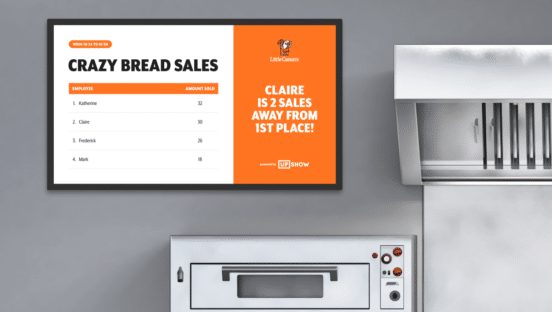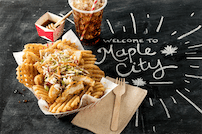Sponsored by Avery Dennison.
Across the country, consumer preference is moving more toward fresh foods than ever before. When those foods aren’t stored properly, or aren’t taken care of, foodservice establishments can see a chain reaction of negative effects. As more consumers have higher expectations from restaurants and easy access to social media, it is more important than ever to ensure that mission critical daily tasks are addressed quickly and efficiently.
Routine tasks, like monitoring food temperature, cleaning customer areas, and more, can make or break a food service establishment. For example, failure to maintain food at the proper temperature is one of the most common violations in restaurant inspections, and when food is stored at the wrong temperature, it decreases a product’s shelf-life, as well as increases the risk of food-borne illnesses. When employees fail to complete temperature checks or to do other critical tasks, they can negatively impact a restaurant’s reputation.
Automating some of those tasks can not only reduce food costs, but also address the growing labor shortage in the hospitality industry. Products like Avery Dennison’s FreshMarx Temp Tracker and Task Tracker help to make those “must dos” more manageable.
“We’ve been in the restaurant business for over two decades,” says Ryan Yost, general manager of printer solutions for Avery Dennison. “We started seeing these issues throughout the industry, and we thought about how we could help restaurants solve those problems and save money.”
Two of the company’s new products allow food service establishments to not only monitor their cold-storage units day and night, but also provide a way for managers and owners to see that those mission critical chores are getting done.
FreshMarx Temp Tracker, the company’s cloud-based temperature and humidity monitoring system, automates temperature tracking in refrigerators and freezers and sends notifications when a unit drops out of the acceptable temperature range. Using a sensor placed inside the unit, the application tracks the information from the unit, sending it to the cloud, where it is logged. If there is a problem, the system sends a text message or email alert that let’s managers know immediately so they can quickly address the problem.
The application can be loaded on a phone or tablet, as well as a desktop computer. The desktop application allows restaurant management to customize the application for their own personal preferences, such as different levels of alerts if the temperature goes above the acceptable range.
“The average value of food inside a walk-in is around $10,000,” Yost says. “Freshmarx Temp Tracker works in anything that chills food. It has the potential to give restaurant owners the opportunity to move food to another cooling unit if something goes wrong and save thousands in food costs.”
FreshMarx Task Tracker, the company’s cloud-based digital checklist application, allows restaurants to move away from paper checklists to ensure that kitchen tasks are getting done. While the application can standardize tasks across multiple restaurant locations, it also allows managers to customize their digital “must do” lists and track progress remotely. The application also allow managers and owners to require employees send photographs of the completed tasks, reducing incidents of checklist “forgery.”
“This is really designed around helping manage labor,” Yost said. “Most large franchises give out a task list. We’ve taken that and made it electronic, and integrated into it the ability to store data for compliance and analysis, and optimize resources.”
The two new applications work seamlessly with the rest of the company’s FreshMarx solutions designed to address food labeling, food safety and compliance and inventory management needs across the foodservice industry.
By Liz Carey













